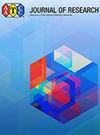Oxygen-enriched Nanobubbles for a Green Reactive Washing Process
IF 1.2
4区 工程技术
Q4 MATERIALS SCIENCE, TEXTILES
引用次数: 3
Abstract
In this study, we used the new nanobubbles technology to create a green reactive washing process for the textile industry, as one of the most polluting sectors where environmentally friendly process designs are indispensable to protect the environment. With this technology, the possibility of eliminating the soaping-off step from the reactive washing sequence was investigated. For the design of an environmentally friendly reactive washing process, the effects of increasing the process temperature of the soaping-off step as well as the use of oxygen-enriched NBs in all washing steps after reactive dyeing with three different dyes were investigated. The results were evaluated by comparing the color coordinates, strength, and fastness of dyed cotton towels washed according to the conventional and alternative processes as well as examining the absorbance and chemical oxygen demand values of the washing baths. Alternative washings did not cause significant differences in color coordinates, while the lowest color strength and highest fastness values were obtained after washing with nanobubbles. The absorbance graphs showed that the most colorful baths belonged to the first bath of the nanobubble washing regime. Chemical oxygen demand measurements revealed that the alternative washing systems were more environmentally friendly than the conventional ones. Based on the results of this study, we concluded that it was possible to implement more eco-friendly washing methods by eliminating the use of soap. Graphical abstract用于绿色反应洗涤工艺的富氧纳米气泡
在这项研究中,我们使用新的纳米气泡技术为纺织业创造了一种绿色反应洗涤工艺,纺织业是污染最严重的行业之一,环保的工艺设计对保护环境必不可少。利用该技术,研究了从反应洗涤序列中消除皂洗步骤的可能性。为了设计一种环保的反应洗涤工艺,研究了提高皂洗步骤的工艺温度以及在用三种不同染料进行反应染色后的所有洗涤步骤中使用富氧NBs的影响。通过比较根据传统工艺和替代工艺洗涤的染色棉毛巾的色坐标、强度和牢度,以及检查洗涤浴的吸光度和化学需氧量值来评估结果。交替洗涤不会导致色坐标的显著差异,而在用纳米气泡洗涤后获得最低的色强度和最高的牢度值。吸光度图显示,最丰富多彩的浴属于纳米气泡洗涤方案的第一浴。化学需氧量测量显示,替代洗涤系统比传统洗涤系统更环保。根据这项研究的结果,我们得出结论,通过消除肥皂的使用,可以实施更环保的洗涤方法。图形摘要
本文章由计算机程序翻译,如有差异,请以英文原文为准。
求助全文
约1分钟内获得全文
求助全文
来源期刊

AATCC Journal of Research
MATERIALS SCIENCE, TEXTILES-
CiteScore
1.30
自引率
0.00%
发文量
34
期刊介绍:
AATCC Journal of Research. This textile research journal has a broad scope: from advanced materials, fibers, and textile and polymer chemistry, to color science, apparel design, and sustainability.
Now indexed by Science Citation Index Extended (SCIE) and discoverable in the Clarivate Analytics Web of Science Core Collection! The Journal’s impact factor is available in Journal Citation Reports.
 求助内容:
求助内容: 应助结果提醒方式:
应助结果提醒方式:


